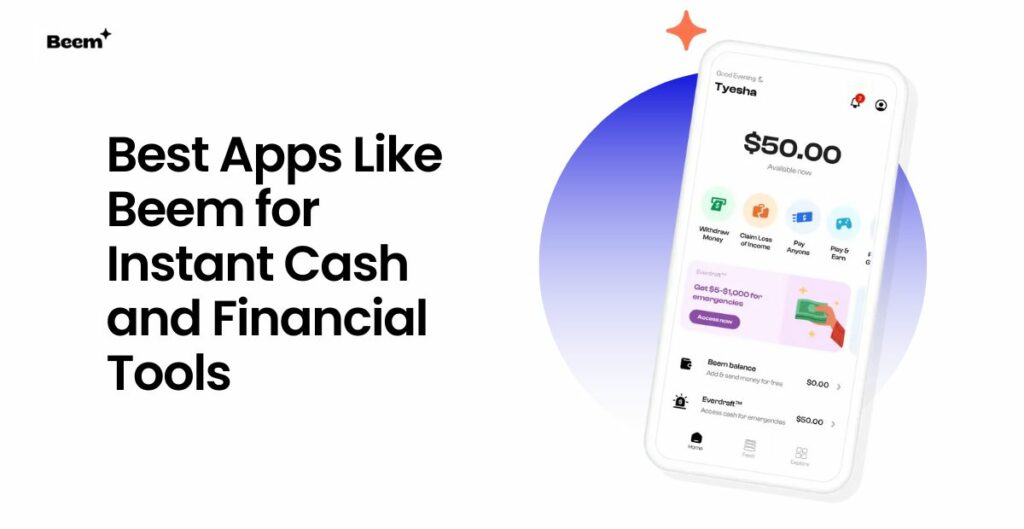Table of Contents
Planning a trip is like solving a puzzle: every piece matters, but timing can make or break the entire picture. Whether you’re booking a flight, locking in a hotel room, or securing tickets for a must-see attraction, when you book is almost as important as what you book. Get it wrong, and you might end up overspending or missing out altogether. Get it right, and you’ll enjoy significant savings, smoother planning, and peace of mind.
The challenge? Booking too early can mean paying inflated rates before discounts kick in. Booking too late can leave you scrambling for availability, with last-minute prices pushing your budget to the breaking point. The secret lies in knowing the “sweet spot” — those optimal booking windows where supply, demand, and pricing align in your favor.
This guide explores the science and strategy behind booking windows for flights, hotels, and activities. We’ll also highlight how Beem’s Budget Planner can help you prepare financially so you’re always ready to book at the right time. By the end, you’ll have a clear roadmap for booking smarter, saving money, and traveling stress-free.
Why Booking Windows Matter
The Economics of Supply and Demand
Travel pricing is dynamic. Airlines, hotels, and tour operators constantly adjust rates based on supply, demand, and booking behavior. If a plane is half-empty months before departure, airlines may lower fares to attract more bookings. As the departure date nears and seats fill up, prices climb. Similarly, hotels increase rates during peak events or lower them during off-seasons to maximize occupancy. Understanding this dynamic pricing model helps you anticipate when rates will be most favorable.
The Risk of Procrastination vs. Premature Booking
Both extremes hurt. Book too early, and you may pay higher rates because providers haven’t yet adjusted prices downward. Wait too long, and prices skyrocket as availability dwindles. For travelers, striking the right balance is critical — it’s about finding the window when prices are low but options are still plentiful.
Peace of Mind with the Right Timing
Beyond financial savings, booking windows that are correct reduce stress. Knowing you secured your flight or hotel at the right time brings a sense of confidence. It also prevents the anxiety of last-minute scrambles or the regret of discovering someone else booked the same room or activity at half the price. Timing truly provides peace of mind.
Flights — Finding the Sweet Spot
Domestic vs. International Differences
When booking flights, one size does not fit all. For domestic trips, the optimal time to book is typically 1–3 months prior to departure. Airlines release discounted fares once demand forecasts settle, but rates climb quickly as the departure date approaches. For international flights, the window expands to 3–6 months ahead, sometimes even longer for peak-season destinations. Booking in this range balances affordability with availability.
Seasonal and Holiday Travel
Timing matters even more around holidays and peak seasons. Summer vacations, Christmas, and major festivals see a surge in demand, pushing prices higher. For these periods, booking 6–9 months ahead is wise. Waiting too long almost guarantees you’ll pay inflated fares. Travelers who plan around school holidays or big events should lock in flights early to avoid disappointment.
Tools That Track Fare Trends
Technology has made timing flights easier. Fare trackers like Google Flights, Skyscanner, or Hopper monitor price trends and alert you when fares drop. These tools eliminate the guesswork from booking windows, enabling you to spot deals in real-time. Savvy travelers use them to avoid panic booking and instead pounce on the best opportunities.
Budgeting for Flights with Beem
Flights are often the biggest single expense of a trip. By creating a flight-specific sinking fund in Beem’s Budget Planner, you can save gradually in advance. When fares hit that optimal window, you’re ready to book without stretching your budget. Beem also categorizes expenses so you can compare flight costs against your overall travel fund, ensuring balance.
Hotels — Securing the Best Deals
When to Book Luxury vs. Budget Stays
The sweet spot for hotels depends on the type of stay. Luxury hotels often reward early bookings, offering discounted rates for those who commit months in advance. Budget and mid-range hotels, however, sometimes offer last-minute deals to fill empty rooms. Knowing your travel style and risk tolerance helps you decide whether to book early or wait for discounts.
Factors That Affect Hotel Pricing
Location, seasonality, and local events all impact hotel rates. A business hotel in a financial hub may be cheaper on weekends, while resorts in beach towns peak during holidays. Local events — from music festivals to conferences — can spike demand overnight. Monitoring calendars for your destination helps you anticipate rate surges.
Leveraging Memberships and Loyalty Programs
Frequent travelers benefit from loyalty programs. Points, free nights, and member-only discounts can significantly lower costs. Even if you don’t travel often, signing up for free membership programs at major hotel chains can unlock hidden deals. Pairing loyalty perks with the right booking window amplifies savings.
Tracking Hotel Costs with Beem
Accommodation expenses can sneak up on you, especially during peak seasons. By using Beem’s Budget Planner, you can allocate funds for hotels well in advance, ensuring you’re financially prepared to grab the best rates when they appear. Beem also makes it easy to track how much of your travel budget is going toward lodging, preventing overspending.
Read: Avoiding Tourist Scams: Common Angles and Scripts
Activities — Timing for Tours, Tickets, and Excursions
Popular Attractions and Tours
For iconic experiences — like climbing Machu Picchu, visiting the Eiffel Tower, or taking guided tours of the Vatican — demand is high and tickets sell out quickly. Booking months in advance is essential to secure your spot and avoid inflated resale prices. These are not activities to leave until the last minute.
Adventure and Seasonal Activities
Activities tied to seasons, such as ski trips, safaris, or cherry blossom tours, require earlier planning. Providers know demand spikes during narrow timeframes, so they price accordingly. Booking early not only ensures lower prices but also guarantees availability before slots vanish.
Flexible vs. Fixed Plans
Not every activity requires early booking. City walking tours, local markets, and casual excursions often offer last-minute deals. Here, flexibility works in your favor — waiting until arrival may get you discounts. The key is distinguishing between experiences that require early planning and those that reward spontaneity.
Budgeting Activities with Beem
Activities often get overlooked during trip planning, yet they can eat into budgets quickly. With Beem’s Budget Planner, you can set aside funds specifically for excursions. Tracking these costs separately ensures you don’t dip into your food or lodging budget for “extras,” keeping your trip financially balanced.
Common Booking Mistakes to Avoid
Believing One-Size-Fits-All Rules
Many blogs claim there’s a magic number of days for booking flights or hotels. In reality, optimal windows vary by destination, season, and provider. Rigidly following “universal” rules can cost you money. Flexibility and research are your best tools.
Forgetting to Factor in Cancellation Policies
Sometimes the cheapest option isn’t the best. Non-refundable rates may look attractive but can backfire if plans change. Always weigh flexibility against cost. Paying slightly more for a cancellable booking may save you in the long run.
Ignoring Package Deals
Bundled packages that include flights, hotels, and activities often provide discounts. While not always the best option, they’re worth considering — especially if you value convenience. The key is comparing total package costs with individual bookings to see where you save more.
Real-Life Examples of Smart Booking Windows
Emma and David, a couple planning a trip to Europe, booked their international flights six months in advance. By doing so, they saved nearly 25% compared to friends who booked just two months before departure. Their foresight freed up money for additional activities.
The Patel family secured hotel rooms for a summer vacation by booking three months in advance. When prices surged closer to the holiday, they were relieved to have locked in affordable rates early. Their savings covered dining experiences they hadn’t initially planned for.
James, a solo traveler to Southeast Asia, waited to book certain city tours until arrival. His flexibility paid off — he snagged last-minute discounts without compromising his experience. By saving on smaller excursions, he splurged on a guided trek he really wanted.
FAQs on Booking Windows
1. What is the best time to book domestic vs. international flights?
Domestic flights are usually cheapest 1–3 months before departure, while international flights are best booked 3–6 months in advance. For peak seasons, booking even earlier — up to 9 months — can save money and secure availability.
2. How far in advance should I book hotels for peak travel seasons?
For peak times like summer holidays or major festivals, book hotels at least 3–6 months in advance. During off-seasons, you can often wait until closer to your trip or find last-minute deals, especially for budget accommodations.
3. Are last-minute deals really worth it for activities?
For flexible, low-demand activities, yes — you can often save by waiting. But for high-demand or seasonal attractions, last-minute bookings are risky and usually more expensive. Plan ahead for must-do activities and leave flexibility for extras.
4. What tools can help me monitor booking windows?
Tools like Google Flights, Hopper, and Skyscanner track airfare trends, while hotel apps like Booking.com and Hotels.com offer price alerts. Pairing these with Beem’s Budget Planner ensures you’re financially ready when the right deal appears.
5. How does Beem help me budget for flights, hotels, and activities?
Beem allows you to create separate categories for each expense, track real-time spending, and set up sinking funds for future trips. This way, when the optimal booking window opens, you’re ready to act without overspending.
Conclusion
Timing is one of the most powerful money-saving tools for travelers. Whether you’re booking flights, hotels, or experiences, understanding the best windows for deals can save you hundreds of dollars and help you travel smarter. Book too early, and you risk overpaying; book too late, and prices or availability can slip away. The sweet spot lies in planning strategically and being financially ready to act when the right moment comes.
That’s where Beem makes all the difference. With Beem’s Budget Planner, you can set travel budgets, build trip-specific savings goals, and track spending in real time, so you’re always ready when prices drop. If a great deal appears but funds are tight, Everdraft™ offers instant access to up to $1,000 with no credit checks or interest — helping you seize opportunities without financial stress.
Plus, Beem’s Smart Wallet empowers you to Earn, Save, Send, Spend, and Grow your money seamlessly in one place. Its Cashflow AI helps forecast expenses, while Job Loss Protect™ and Identity Theft Insurance (up to $1M) ensure you’re financially covered no matter what life throws your way.
So, master your booking windows with Beem by your side. Download the Beem app today and travel with clarity, confidence, and control — where every plan is powered by smarter money management.















































